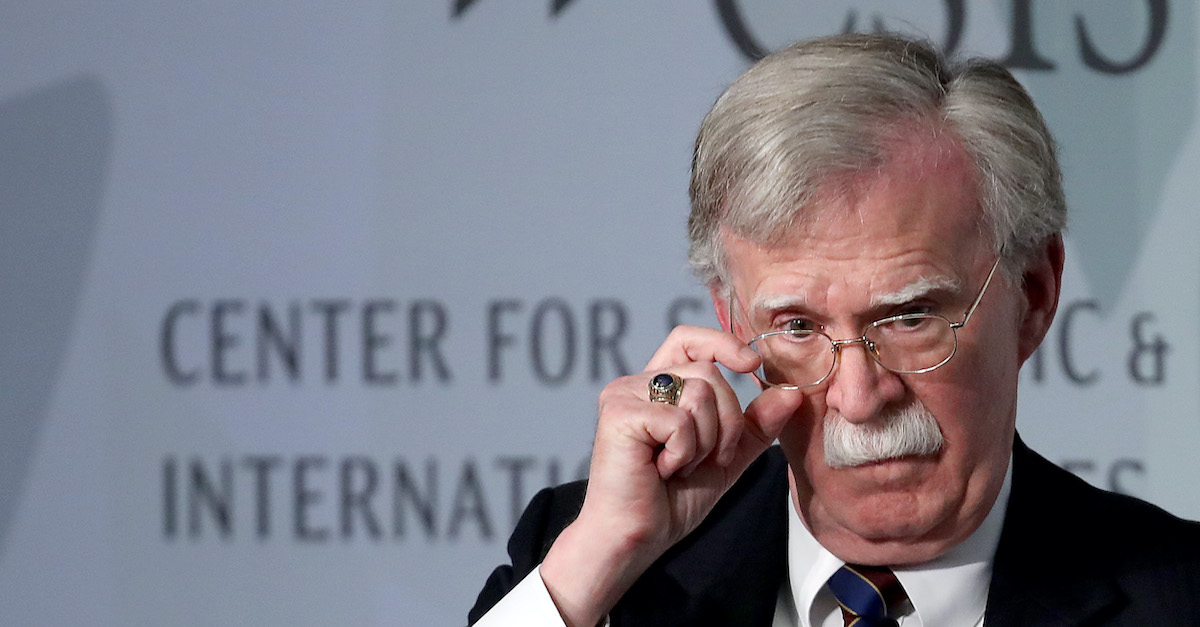
Read the transcript (here’s the memo)! There’s no proof that congressionally appropriated military aid was withheld to leverage an ally foreign power into investigating a domestic political rival ahead of the 2020 election. Everyone who alleged this quid pro quo in testimony before the House was conflicted, untrustworthy, a Never Trumper, and–most importantly–didn’t have first-hand knowledge of relevant events. No one who might have first-hand knowledge shall speak about this. Then one did–or at least began to–in an odious, self-serving way. And it didn’t matter.
This is a brief retelling of recent months to the present day, when the Wall Street Journal editorial board has dismissed reports about the details in former National Security Adviser John Bolton’s manuscript as basically meaningless.
The WSJ lede tells part of the story:
The report that John Bolton’s book draft implicates President Trump more closely to ordering a delay in military aid to Ukraine is hardly a surprise and won’t—and shouldn’t—change the impeachment result. It does, however, complicate the trial task for Republican Senators, and our advice is for Mr. Trump’s former national security adviser to tell the public now what he says in his book.
Implicates more closely? Isn’t a surprise? Won’t and shouldn’t matter, but may make Republican Senators squirm a little bit more on matters of Senate procedure than they otherwise might have?
To be clear, here is what the New York Times reported in its lede about the Bolton draft on Sunday:
President Trump told his national security adviser in August that he wanted to continue freezing $391 million in security assistance to Ukraine until officials there helped with investigations into Democrats including the Bidens, according to an unpublished manuscript by the former adviser, John R. Bolton.
If that’s exactly what Bolton has to say, it isn’t “implicating more closely.” It’s implicating, it’s overwhelmingly likely that the story doesn’t end there, and John Bolton has first-hand knowledge. It isn’t a surprise, because it’s what Democrats have accused the president of doing all along. The surprise is that new information supporting the overarching allegation has come out–as Trump lawyers argue against that allegation.
But even that is meaningless for the board–the new information merely confirms what everyone already assumes Trump did. It was “reckless judgment” but not impeachable conduct, WSJ argued:
All Mr. Bolton reportedly adds is news of a conversation in which Mr. Trump made a direct connection between the two that nearly everyone already assumed.This still isn’t close to a high crime or misdemeanor. Mr. Trump’s reckless judgment was resisted by his staff and Senators like Mr. Johnson, and the President eventually changed his mind. Ukraine never opened an investigation, the U.S. aid was delivered on time, and Mr. Trump met with Ukraine’s President in New York. There was no crime, and Mr. Trump’s military support for Ukraine continues to be far more robust than Barack Obama’s.
It should be noted that at least one government watchdog concluded that the hold on the military aid broke the law. During the months when the hold was in place, concerns of law-breaking were raised by the Pentagon but those concerns were ignored. And when the public tried to learn about what the Pentagon and the Office of Management and Budget were talking about, the Department of Justice redacted emails expressing concerns that the law was not being followed. And White House and DOJ lawyers came up with a justification for why they could ignore the Impoundment Control Act of 1974 requirement to notify Congress of the hold. The justification? Trump is the President of the United States.
Again, the Journal is saying that the motivations for the aid hold are not surprising and that abuse of power is not impeachable.
The Journal’s editorial board does, in fairness, say that Bolton should tell the public himself what he says in his book. Very few people are likely to disagree with that. But as soon as that allowance was made, the editorial said that the timing of the Bolton book news cycle was not much different from the timing of the sexual misconduct allegations made against then-Supreme Court nominee Brett Kavanaugh:
Mr. Bolton’s lawyer, Chuck Cooper, says he submitted the draft of his client’s memoir to the White House for security-clearance screening on Dec. 30. Yet the New York Times account of what the book says about Mr. Trump and Ukraine appears a month later—on the eve of the Senate vote on witnesses. The timing is Kavanaugh-esque.
[Image via Win McNamee/Getty Images]